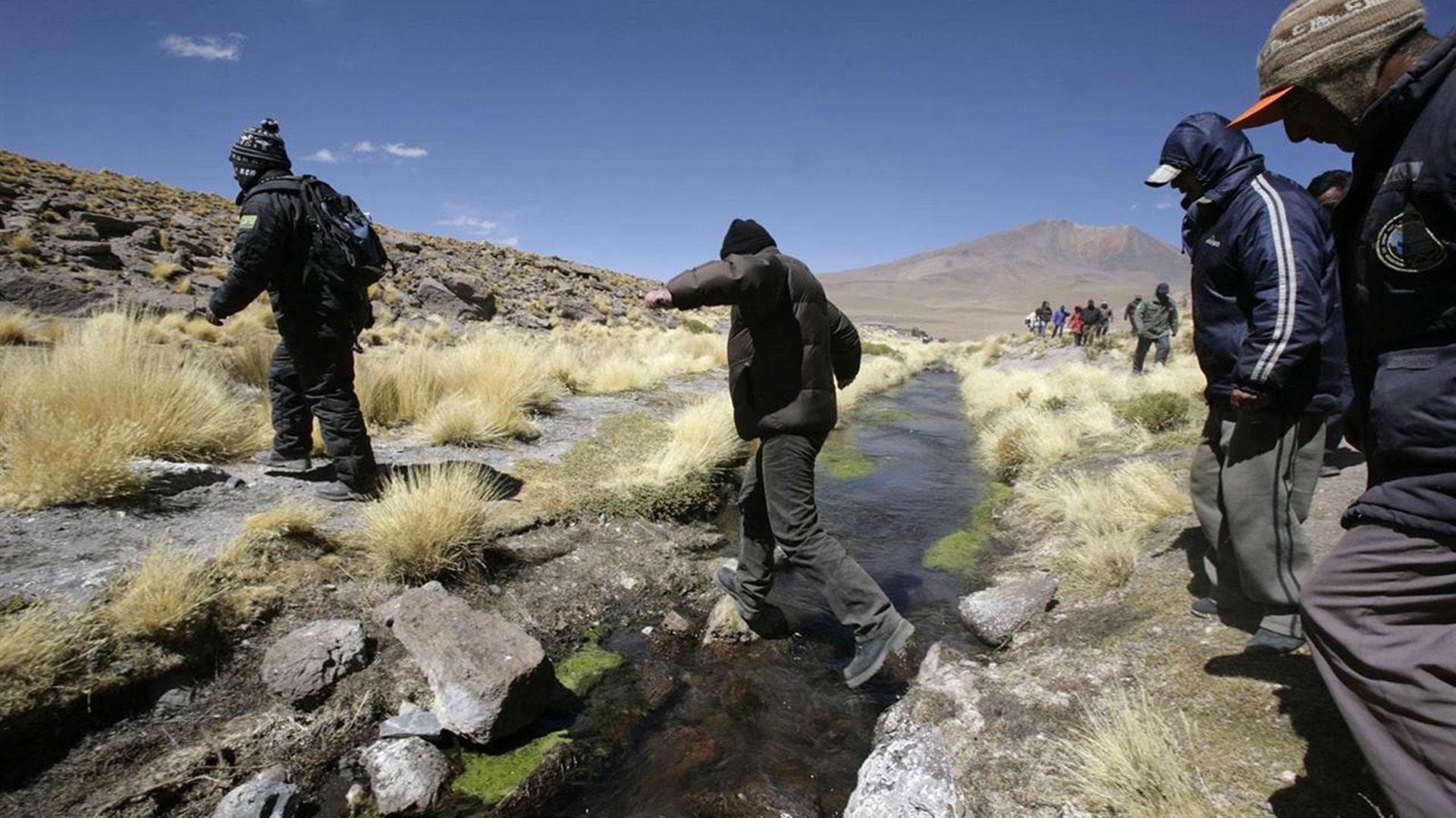
Chile and Bolivia will once again clash at the International Court of Justice (ICJ) in The Hague starting this Friday, this time over the waters of Silala, an international river for Chileans and for Bolivians a tributary that comes from springs they own.
The case dates back to 2016, when Chile surprisingly filed a lawsuit over Silala waters, amid another dispute between the two countries in the ICJ in which La Paz asked to force Santiago to negotiate a sovereign exit to the sea, which was rejected by the court in October 2018.
Chile demands that the ICJ declare the Silala an international river of successive channel and use of shared waters. For its part, Bolivia maintains that Silala is a tributary that originates in its territory in springs and groundwater and requires Chile to pay for the use of these waters.
The process occurs after Chile accepted payment of 50% of water use in a pre-agreement reached with Bolivia in May 2009. But Bolivia proposed two years later that the payment would be from the concession of the waters to Chile in the early 20th century, recognizing a historic debt.
With this demand, Chile “safeguards its rights of use over the waters of the Silala River” in the face of Bolivia's position that it “owned 100% of its waters”, according to a document released to the press by the Chilean Foreign Ministry.
Chile also reacted to the accusation that the government of then-President Evo Morales made in 2015 that it was “stealing” the waters of this river, within the framework of a strategy to show it internationally as an “abusing state”.
In August 2018, Bolivia presented its arguments to the Chilean lawsuit and “countersued” the country in the same case, stating that a significant part of the water flow that flows into Chile is of an artificial nature and that it must pay for its use.

The process at the ICJ comes just three weeks after the leftist Gabriel Boric assumed the presidency of Chile. “You are aware of Chile's allegations,” and you will observe Chilean intervention in the Foreign Ministry, Foreign Minister Antonia Urrejola told local media outlet Emol.
The pleadings begin on Friday and conclude on 14 April. The ICJ does not have a definite deadline to deliver its final decision, but the Chilean delegation hopes that it will be a speedy procedure and the sentence will be known in about six months.
“In April there will be no definition of the court in The Hague, any information to that effect is speculation, let's say, not very responsible on this issue that concerns us all, we Bolivians must be very cautious,” Bolivian Foreign Minister Rogelio Mayta said in La Paz.
Chile and Bolivia have not had diplomatic relations since 1978, after fruitless negotiations to resolve the Bolivian maritime demand.
Chile asks the ICJ to declare the Silala an international river and stipulate its “equitable and reasonable” use. Chileans argue that, due to the natural slope, the water they use does not impact Bolivia. “Due to gravity, water can only flow into Chilean territory,” says the text of the foreign ministry.
Meanwhile, Bolivia argues that the course of the Silala waters was artificially intervened after pipelines carried out in the last century, based on the concession that the Bolivian government handed over to a railway company owned by British and Chilean capitals.
“There are well-founded legal reasons that make the Chilean position stronger. Among other things, because Bolivia has had some changes in its argumentation over time. On the other hand, the Chilean position is historically more coherent,” the academic of the University of Chile, Gilberto Aranda, assured the AFP agency.
The international analyst highlights that this is a less “bullied” case than the previous one, without media campaigns by both foreign ministers to raise awareness among international public opinion. “This has been much more carried out in the international legal channels envisaged,” he added.
The Silala has an extension of 10 km, six of which cross into Chilean territory.
37% of Silala Chile's water is used to supply the city of Antofagasta and the rest is used for copper mining, the metal of which it is the main producer in the world.
(With information from AFP)
Keep reading:
Últimas Noticias
Debanhi Escobar: they secured the motel where she was found lifeless in a cistern

The oldest person in the world died at the age of 119

Macabre find in CDMX: they left a body bagged and tied in a taxi
The eagles of America will face Manchester City in a duel of legends. Here are the details

Why is it good to bring dogs out to know the world when they are puppies



